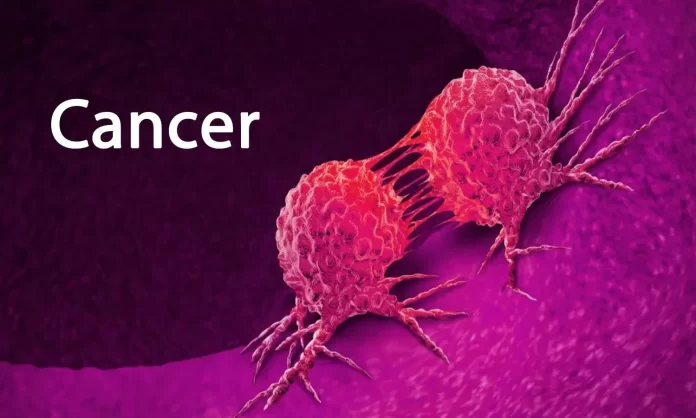Cancer is a deadly and often-fatal disease affecting millions worldwide. Cancer treatment has come a long way with medical research and technology advancements, offering hope and improved patient outcomes. This article will examine the process of cancer treatment, from diagnosis through survivorship, highlighting the numerous methods used to fight this deadly condition.
Diagnosis and Staging
The first step in effective cancer treatment is obtaining an accurate diagnosis through methods like blood tests and imaging scans. Once diagnosed, the next crucial step is staging, which helps determine the cancer’s extent and spread. Staging is essential for doctors to develop individualized treatment plans tailored to each patient’s needs in cancer treatment.
Surgery
Surgery aims to eliminate the tumour and nearby afflicted tissues to rid the body of cancerous cells. Different surgical approaches may be used depending on the kind and stage of cancer. Modern surgical methods, such as robotic surgery, allow doctors to carry out operations with more accuracy hastening the rehabilitation of patients.
Radiation Therapy
Radiation therapy uses high-energy rays to destroy cancer cells while minimising damage to healthy surrounding tissues. It is commonly employed as a localised treatment, targeting a specific tumour area. Radiation therapy is precisely administered thanks to technological developments like proton therapy, which reduces side effects and enhances outcomes. Depending on the type and severity of the cancer, radiotherapy may be used alone or alongside other therapies.
Chemotherapy
Chemotherapy administers medicines through the blood vessels to target cancerous cells. Chemotherapy destroys cancer but can harm healthy cells, causing side effects like nausea and hair loss. However, the management of side effects has improved because of developments in supportive care and chemotherapy medications, allowing patients to cope with their treatment more effectively.
Targeted Therapy
Targeted therapy is a cancer treatment specifically targeting cancer cells while sparing healthy ones. This approach involves identifying specific genetic mutations or protein alterations in cancer cells. By targeting these specific abnormalities, targeted therapies disrupt the growth of cancer cells, often leading to more effective treatment outcomes. Targeted medications have transformed cancer treatment by offering patients individualised therapy options.
Immunotherapy
Immunotherapy battles the illness by mobilising the body’s natural defences. The body becomes more prepared to eliminate cancerous cells as a result. It can be achieved via immune checkpoint blockers and cancer vaccines. Lung and bladder cancer have responded well to immunotherapy, creating lasting impacts and increasing the survival of patients.
Discover more: Colon Cancer Treatment: Stages & Process Explained.
Supportive Care
Patients must get supportive care throughout their treatment to maintain their general wellness. Supportive care entails various services to manage cancer therapy’s physical and psychological effects. It includes nutritional assistance, psychiatric counselling, and pain control. Incorporating supportive care has improved patient experiences by assisting them in managing the physical and psychological challenges brought on by the disease.
Survivorship
Survivorship denotes the change from active treatment to post-treatment care and is a crucial stage. Patients adjusting to life after cancer might experience psychological and physical changes. Regular follow-up visits and surveillance tests are crucial to detect signs of recurrence or potential long-term side effects. In addition to providing a happy and healthy life after treatment, survivorship programs are crucial in assisting cancer survivors in adjusting to their situation.
The Role of Clinical Trials: Advancing Cancer Treatment
Clinical trials play a crucial role in advancing cancer treatment. These studies assess the efficacy and safety of new therapeutic medications and procedures. Patients may have access to treatments through clinical trials that are not offered through conventional treatment options.
Clinical trials also help researchers and doctors establish individualised treatment plans by advancing our understanding of cancer biology.
- Clinical trials are conducted in different phases, each serving a specific purpose. Phase I trials analyse the new treatment’s safety and dose.
- Phase II trials examine its efficacy and adverse effects in more patients.
- Phase III trials compare the new treatment to the current standard of care, providing evidence to support its adoption in clinical practice. Phase IV trials are conducted after a treatment is approved, during which they monitor its lasting impact.
Patients may actively impact cancer treatment’s future by participating in clinical trials. They are essential for producing scientific data and enhancing future patients’ treatment options. They play a vital role in generating scientific evidence and improving treatment options for future patients. Doctors must discuss and analyse the involvement in clinical trials to guarantee that patients receive the most effective care possible.
To conclude
In conclusion, cancer treatment has witnessed significant advancements which have greatly improved patient outcomes and quality of life. Clinical trials are crucial in advancing cancer treatment by testing new therapies and contributing to the overall understanding of cancer biology. The future of cancer treatment has optimism with continued research and a focus on patients.
Several leading hospitals with advanced facilities and comprehensive approaches are at the frontier of cancer treatment. Their highly skilled doctors use the latest technologies and treatment modalities to provide personalised and effective care to patients. Through continued research trials and a comprehensive approach to patient care, these hospitals are dedicated to improving cancer treatment, ensuring the best outcomes for those battling the disease.


